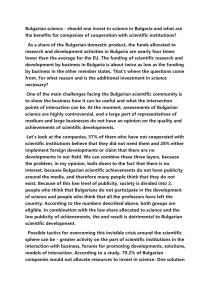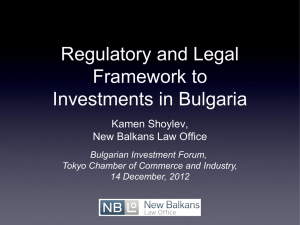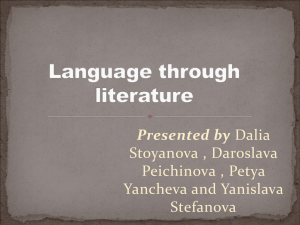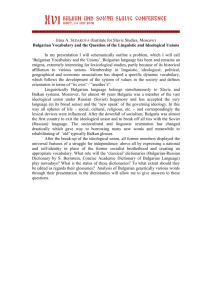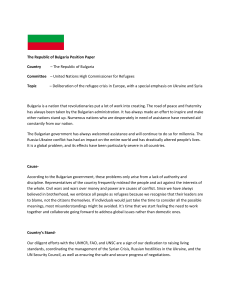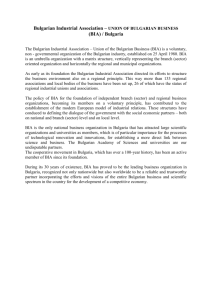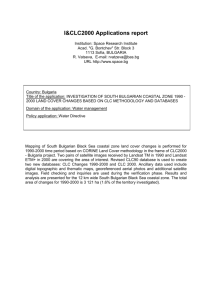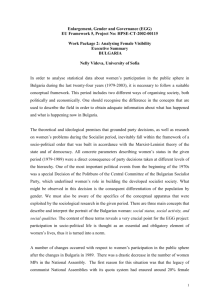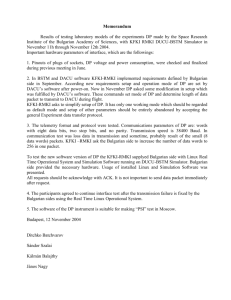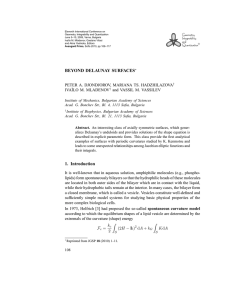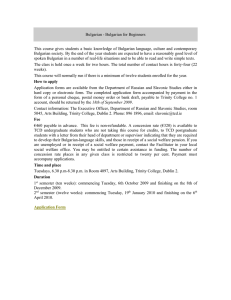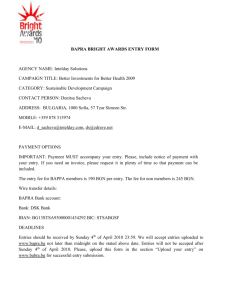Environmental education in the initial stage of the Bulgarian formal
advertisement
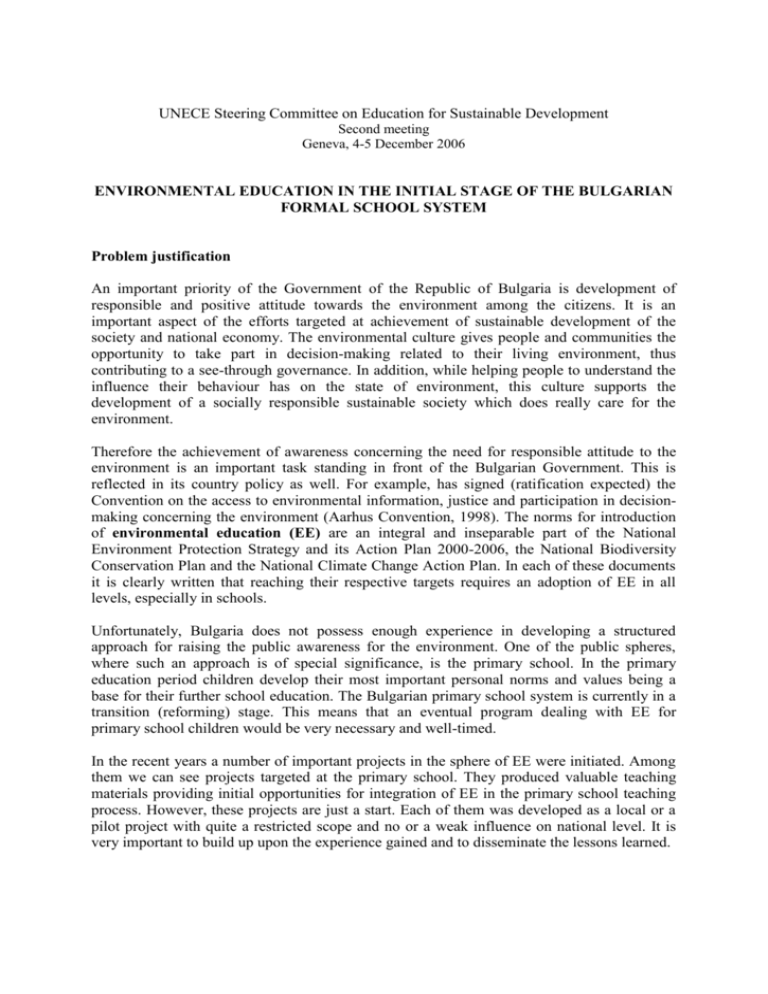
UNECE Steering Committee on Education for Sustainable Development Second meeting Geneva, 4-5 December 2006 ENVIRONMENTAL EDUCATION IN THE INITIAL STAGE OF THE BULGARIAN FORMAL SCHOOL SYSTEM Problem justification An important priority of the Government of the Republic of Bulgaria is development of responsible and positive attitude towards the environment among the citizens. It is an important aspect of the efforts targeted at achievement of sustainable development of the society and national economy. The environmental culture gives people and communities the opportunity to take part in decision-making related to their living environment, thus contributing to a see-through governance. In addition, while helping people to understand the influence their behaviour has on the state of environment, this culture supports the development of a socially responsible sustainable society which does really care for the environment. Therefore the achievement of awareness concerning the need for responsible attitude to the environment is an important task standing in front of the Bulgarian Government. This is reflected in its country policy as well. For example, has signed (ratification expected) the Convention on the access to environmental information, justice and participation in decisionmaking concerning the environment (Aarhus Convention, 1998). The norms for introduction of environmental education (EE) are an integral and inseparable part of the National Environment Protection Strategy and its Action Plan 2000-2006, the National Biodiversity Conservation Plan and the National Climate Change Action Plan. In each of these documents it is clearly written that reaching their respective targets requires an adoption of EE in all levels, especially in schools. Unfortunately, Bulgaria does not possess enough experience in developing a structured approach for raising the public awareness for the environment. One of the public spheres, where such an approach is of special significance, is the primary school. In the primary education period children develop their most important personal norms and values being a base for their further school education. The Bulgarian primary school system is currently in a transition (reforming) stage. This means that an eventual program dealing with EE for primary school children would be very necessary and well-timed. In the recent years a number of important projects in the sphere of EE were initiated. Among them we can see projects targeted at the primary school. They produced valuable teaching materials providing initial opportunities for integration of EE in the primary school teaching process. However, these projects are just a start. Each of them was developed as a local or a pilot project with quite a restricted scope and no or a weak influence on national level. It is very important to build up upon the experience gained and to disseminate the lessons learned.
